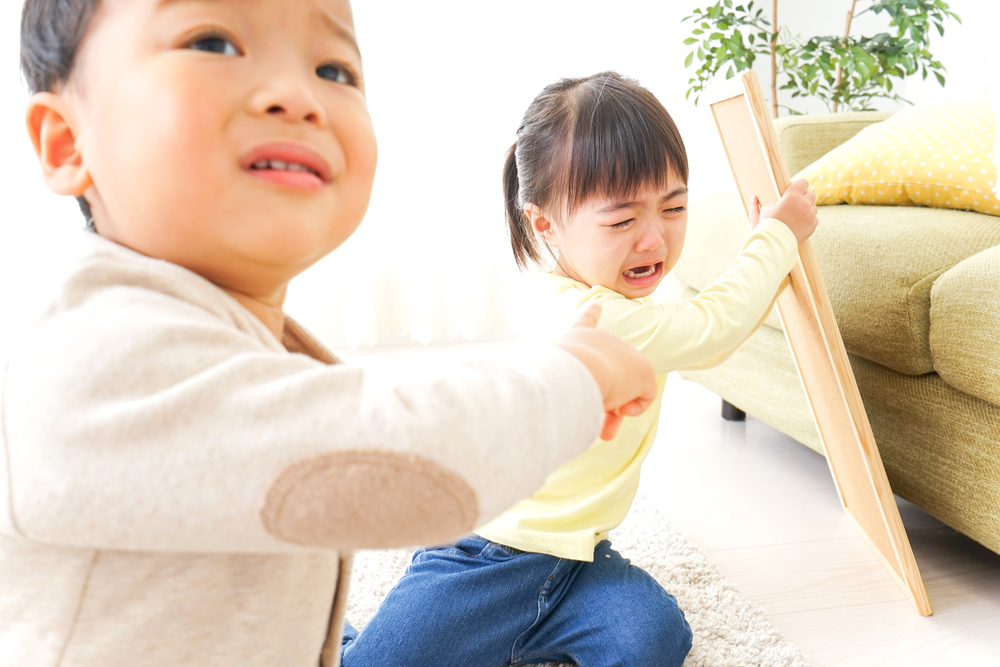Contents:
- Medical Video: Jordan Peterson - the overprotective mother or 'how not to raise a child'
- Why can toddlers become possessive?
- Can possessive children change?
Medical Video: Jordan Peterson - the overprotective mother or 'how not to raise a child'
As your toddler develops, you will experience a moment where children become very possessive of things or people around them. They will assume that all objects and people around them belong to them, and that others cannot touch or possess them.
If someone dares to touch the toy, they will be angry. Or if the food is asked, they will cry. It could also be when the father or mother talks with other people or has to work, the child becomes hysterical. Although annoying, possessive behavior is a normal stage in the development of their age.
Why can toddlers become possessive?
The possessive phase usually starts from children aged 18 months to 4 years. This phase is a normal development stage, because in this phase toddlers learn to understand the concepts of ownership, bonding, and identity.
An earlier study also mentioned that possessive behavior is known as the term "endowment effect"Not only adults, but also toddlers. Endowment effect is a term that indicates that someone tends to think that the things they have are more valuable just because they belong to them.
A child development psychologist at the University of Michigan also explained that toddler thinking is still very simple. At the age of 2 to 4 years, toddlers realize that he can claim an item or person as his own only through words like, "This is mine!". So don't be surprised if your child will claim all the things he likes as his own.
In addition, at the age of a toddler, they also begin to realize their existence. For example, when their babies will reflect and think that what they see in the mirror is another baby. While toddlers already know that reflections in the mirror are themselves. So, along with the development of toddlers' awareness of their existence and identity, toddlers also begin to realize their ownership. Toddlers will feel that their identity is getting stronger if they succeed in claiming something as their own and agreed by someone else.
Can possessive children change?
Facing possessive children is difficult and challenging. However, all you need to know issharing or sharing is not a concept that children can easily accept. So, if you want to train possessive children to be more sincere in sharing, then you need to guide your child patiently. Learning to share for children requires a process from time to time. Here are some steps you can take to help the process:
- Train your child to start sharing with his own parents. This will be easier because they know you won't take it, and they can get their toys back.
- Frequently go to the playground. Invite your child to play outside. This is the best place for children to learn to socialize, share toys, and play alternately with their friends. If children want to bring their own toys from home, ask your child to set aside at least one toy that can be lent to someone else.
- Ask children to lend the items they have a lot. For example story books, lego, crayons, and others. Because, sharing a lot of things will certainly be easier.
- Be patient when teaching your child to share. Over time this possessive child phase will decrease too.
- Become a role model. Besides being indeed passing a certain phase, possessive children can also imitate this negative behavior from the surrounding environment. So, it is important for parents to be role models for children to want to share with each other. Avoid fighting over trivial or unnecessary things in front of children.












